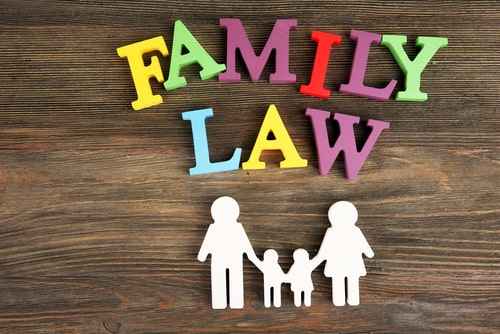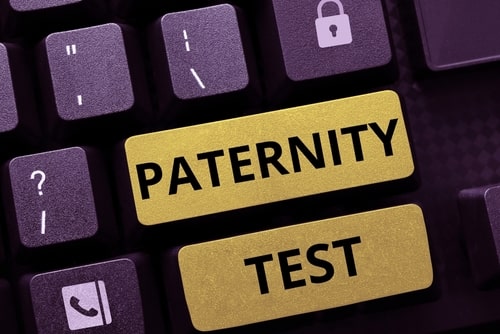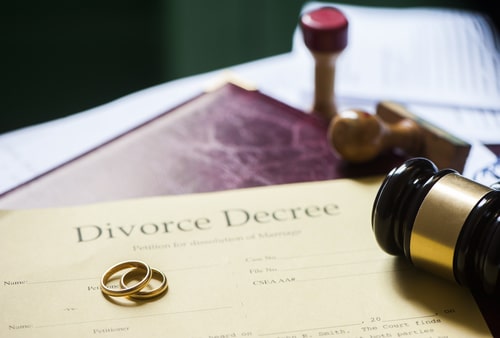Recent Blog Posts
Getting Child Support If the Parents Were Never Married
 Sometimes, relationships do not work out, and one must face the inevitability of a breakup. However, what if you and your now ex-partner share a child? Can child support payments still be received if the parents were never married? Parental responsibilities can get tricky for unwed parents, and it may be a good idea to turn to a knowledgeable attorney for direction.
Sometimes, relationships do not work out, and one must face the inevitability of a breakup. However, what if you and your now ex-partner share a child? Can child support payments still be received if the parents were never married? Parental responsibilities can get tricky for unwed parents, and it may be a good idea to turn to a knowledgeable attorney for direction.
Establishing Paternity is Important
Paternity is automatically established when the parents are married and together during conception. However, without established paternity, the state of Illinois does not recognize an unwed father as a child’s presumed father. Until paternity can be established, the mother will have sole parental responsibilities for the child.
An unwed father can establish paternity in Illinois in one of three ways:
Child Custody and the Holidays
 Parenting time arrangements around the holidays are a delicate situation. The holiday season brings enough stress that figuring out how quality time is best spent in a joint custody agreement may only compound the issue. Parents have plenty of choices to make when it comes to parenting splits during the holidays. An attorney can also offer their advice and help you draft a parenting schedule if necessary.
Parenting time arrangements around the holidays are a delicate situation. The holiday season brings enough stress that figuring out how quality time is best spent in a joint custody agreement may only compound the issue. Parents have plenty of choices to make when it comes to parenting splits during the holidays. An attorney can also offer their advice and help you draft a parenting schedule if necessary.
How To Split Holiday Parenting Time
Divorced parents can use some tried and true methods for parenting time for every holiday in a calendar year. A few of these methods include:
- Every other year (alternating years)
- Holiday splitting
- Fixed holidays
- Doubling up
Parents are also free to figure out a new method for whatever best fits their needs and remains in a child’s best interest.
Social Media’s Impact on Divorce Proceedings
 For society at large, social media has become an integral tool in our lives that has shaped a great many things, chief among them, how we communicate. Our lives unfold on social media for all the world to see, so it should come as no surprise how useful it can be in divorce proceedings – for better or worse. A divorce attorney can help you understand just how impactful an online presence can be to your divorce case.
For society at large, social media has become an integral tool in our lives that has shaped a great many things, chief among them, how we communicate. Our lives unfold on social media for all the world to see, so it should come as no surprise how useful it can be in divorce proceedings – for better or worse. A divorce attorney can help you understand just how impactful an online presence can be to your divorce case.
How Social Media Influences a Divorce Case
When you post pictures and videos of your daily life, you also provide evidence that the opposing party can use against you in a divorce. Not only current events, but a quick social media search can pull up information you may have hoped would never resurface. The constant bickering between family members could make you seem like a hostile person. Club and bar photos could make you appear irresponsible, hurting you when allocating parental responsibilities. Social media can be so influential to your divorce that it could be the factor that brings everything crashing down around you.
Child Support While a Parent Is Incarcerated
 A court order enforces the non-custodial parent to make payments on child support. But what happens when the non-custodial parent is unable to make the payments due to incarceration? Even while incarcerated, a parent’s responsibility to their children does not change. If an Illinois court has ordered child support payments, then that parent is still expected to make those payments. For issues related to child support, it is best to consult a family law or divorce attorney to answer any questions you may have.
A court order enforces the non-custodial parent to make payments on child support. But what happens when the non-custodial parent is unable to make the payments due to incarceration? Even while incarcerated, a parent’s responsibility to their children does not change. If an Illinois court has ordered child support payments, then that parent is still expected to make those payments. For issues related to child support, it is best to consult a family law or divorce attorney to answer any questions you may have.
What is Child Support?
Payments are made to provide for the care of a parent’s children. The payments are often court-ordered unless a plan is created by the parents that does not involve the court. However, child support payments established outside of the court are not enforceable by the court.
Do I Need to Move Out of My Home During a Divorce?
 In most divorce cases, Illinois law does not require you to leave your family home while going through a divorce. However, it may be the better decision to do so if staying there would open you up to domestic abuse. Moving out of the home during a divorce has become commonplace, as sharing a space with the person you no longer want to be married to may only cause more friction and emotional turmoil. For legal advice on approaching your impending divorce, consult an experienced attorney.
In most divorce cases, Illinois law does not require you to leave your family home while going through a divorce. However, it may be the better decision to do so if staying there would open you up to domestic abuse. Moving out of the home during a divorce has become commonplace, as sharing a space with the person you no longer want to be married to may only cause more friction and emotional turmoil. For legal advice on approaching your impending divorce, consult an experienced attorney.
Pros and Cons of Staying in the House
If you have no other option, staying in the house makes sense. Being around your soon-to-be ex-partner may get awkward sometimes, but you should not be expected to live on the street. This is especially true if you are the one who owns the house or is paying the bills. Of course, facing your future ex daily is the con to this. If there is domestic abuse of any kind, this would mean tolerating even more, which could wind up escalating over time.
Is Alimony Guaranteed in an Illinois Divorce?
 As much as some spouses would like to hear that maintenance is guaranteed at the end of every divorce, the reality is that not everyone who petitions for maintenance will be awarded it. Instead, a spouse must qualify for spousal maintenance in one of two ways. Understanding the intricacies of divorce and how it pertains to maintenance is important. An experienced lawyer with knowledge on the subject can go a long way to helping you figure out what you are entitled to once a divorce is finalized.
As much as some spouses would like to hear that maintenance is guaranteed at the end of every divorce, the reality is that not everyone who petitions for maintenance will be awarded it. Instead, a spouse must qualify for spousal maintenance in one of two ways. Understanding the intricacies of divorce and how it pertains to maintenance is important. An experienced lawyer with knowledge on the subject can go a long way to helping you figure out what you are entitled to once a divorce is finalized.
What is Spousal Maintenance?
Spousal maintenance, also referred to as alimony or spousal support, is a payment that one spouse makes to the other to maintain their current standard of living. Over the duration of maintenance payments, the recipient will often undergo education or job training to secure employment that would help them maintain their living standards.
What To Do When You Know You Are Not the Father
 As the presumed father, discovering that you are not the biological father of your child can be devastating. You have been paying for the child, helping to raise the child, and have grown to love this child. The news may be too much to bear, and you decide to file for divorce. However, you still feel connected to the child, but what rights do you reasonably have? You will need a skilled divorce and child custody attorney to help with what is to come.
As the presumed father, discovering that you are not the biological father of your child can be devastating. You have been paying for the child, helping to raise the child, and have grown to love this child. The news may be too much to bear, and you decide to file for divorce. However, you still feel connected to the child, but what rights do you reasonably have? You will need a skilled divorce and child custody attorney to help with what is to come.
How To Maintain a Relationship With The Child
In Illinois, you are considered the presumed father if your wife gives birth and:
- You acknowledged paternity in writing (birth certificate)
- You acknowledged paternity through actions (openly stating you are the father)
Can I Avoid Paying Alimony in Illinois?
 Alimony, known as spousal maintenance in Illinois, can be avoided, but it will take a little bit of pre-planning and forethought to pull it off. Spousal maintenance is never guaranteed in a divorce but can become an issue if one spouse makes substantially more money than the other. If you are wondering whether or not you will have to pay spousal maintenance, consult an experienced divorce lawyer to assess your marital situation.
Alimony, known as spousal maintenance in Illinois, can be avoided, but it will take a little bit of pre-planning and forethought to pull it off. Spousal maintenance is never guaranteed in a divorce but can become an issue if one spouse makes substantially more money than the other. If you are wondering whether or not you will have to pay spousal maintenance, consult an experienced divorce lawyer to assess your marital situation.
How Is Spousal Maintenance Determined?
The court will look at many factors when determining how much and for how long spousal maintenance will be necessary. The factors a judge will consider include:
- Marriage duration
- Income disparity between spouses
Who Gets the House in the Divorce?
 Splitting up marital assets is one of many factors a court will consider during divorce proceedings. The marital home is one such asset that carefully considers who receives it when the divorce is finalized. As Illinois is an equitable distribution state, splitting a house is not so simple. A consultation with a divorce attorney can help you better understand how the division of marital assets works and how compromise can go a long way.
Splitting up marital assets is one of many factors a court will consider during divorce proceedings. The marital home is one such asset that carefully considers who receives it when the divorce is finalized. As Illinois is an equitable distribution state, splitting a house is not so simple. A consultation with a divorce attorney can help you better understand how the division of marital assets works and how compromise can go a long way.
How is the Marital Home Split Between Spouses?
No surefire rule automatically awards the marital home to one spouse over the other. Typically, for one spouse to receive the home, it would take compensation to the other spouse to make up for their share of the house. If both spouses want the home, it will come down to a judge's discretion on how best to divide it. Another factor that may help in determining who gets the home is usually dependent on if the couple has children. The parent who receives most parenting time for their minor children will likely receive the house.
Is It Okay to Date During a Divorce?
 Determining whether it is okay or not to date while going through a divorce is a personal choice. It is legal to do so, but it could cause more problems than it is worth. Dating during a divorce, especially when children are involved, may only make an already combative process more adversarial. To better understand what is and is not a good idea during divorce, consult an experienced divorce attorney.
Determining whether it is okay or not to date while going through a divorce is a personal choice. It is legal to do so, but it could cause more problems than it is worth. Dating during a divorce, especially when children are involved, may only make an already combative process more adversarial. To better understand what is and is not a good idea during divorce, consult an experienced divorce attorney.
Where Could Dating During Divorce Cause Complications?
Dating during a divorce could adversely affect legal matters concerning allocating parental responsibilities, including decision-making and parenting time. A judge could decide that the living environment that the currently dating parent has created may not be suitable for children most of the time. The parent’s new beau may also pose an issue to custodial matters in that they:

















